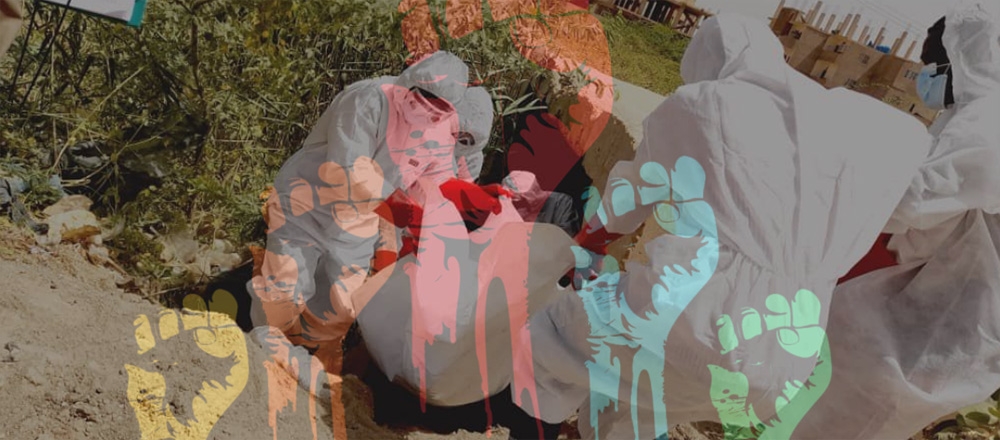
Reparation in the context of transitional justice
Reparation aims to recognize both the causes and the consequences of human rights violations and grievances, in countries emerging from dictatorship, armed conflict or political violence and in societies suffering injustice because of race or the legacy of colonialism.
Victims of human rights violations are all entitled to reparation. Each victim has her different needs, and these needs change over time. The type of reparation required may vary depending on the victims economic level, social type, age and social identity. For example, violations in women have a very different impact than in men, and womens experiences are not limited to sexual or gender-based violence and their consequences. The same is true for displaced communities whose needs for reparation differ from those of displaced civilian families.
States that commit or fail to deter violations, as well as non-governmental bodies, including legal persons, institutions, corporations and armed groups that commit or collude in such violations, have a legal obligation to provide reparation.
It is important to bear in mind that compensation - the payment of money - is only one of many forms of material reparation. Other forms include the restoration of civil and political rights, physical rehabilitation, the granting of access to land, shelter, health care or education. Reparation could take another form: uncovering the truth about violations and providing guarantees of non-repetition. Moral reparations -- such as apologies, construction of memorials and memorialization -- are important measures of constraint, and are made more meaningful when combined with material forms of reparation.
Reparation may be performed through administrative programmes or imposed by judgement in judicial proceedings. In many countries, transitional justice processes have provided reparations to groups, groups and even regions as a whole. The design and implementation of collective reparation may intersect with development programmes, while urgent individual forms of reparation may intersect with humanitarian relief programmes. The emergence of such intersectionalities is imperative because individuals most vulnerable to human rights violations suffer from social and economic inequality. Reparation should be designed and implemented in such a way as to permit the replacement of such unjust and unfair conditions. It is true that most victims view reparation as the most obvious and feasible way of obtaining justice, but it is "rarely prioritized" and often affects the lowest share of funding for transitional justice.
Victims role is essential both in the process of designing and implementing reparation programmes and in achieving their results. The International Centre for Transitional Justice therefore assists victims in disclosing their needs and in identifying better forms of reparation. Together with victims, policy makers must be approached on the practical, legal, financial and procedural challenges of designing and implementing reparation programmes. In addition, reach out to victims and various stakeholders, including national and international policymakers, donors, development actors and other human rights organizations, in order to give redress the same priority as truth-seeking and individual criminal accountability in the countrys pursuit of transitional justice.
Reparation programmes can be developed separately and can accelerate the implementation of truth-seeking and criminal justice measures. The provision of reparation to victims did not require that the Commissions recommendations should be kept in abeyance, nor should it be linked to criminal prosecutions or court proceedings. International criminal courts must be urged to take advantage of non-judicial experiences and support victims appearing before courts in the global North, in their claims for reparation, including against corporations complicit in human rights violations.
In order to find the best ways to meet victims needs and implement reparation programmes, it is important to work to support truth commissions and implementing institutions for reparation, and to support State bodies that help secure reparation funding. as well as addressing violations of economic and social rights, linking accountability for corruption to reparation, and supporting measures to address marginalization at both the economic and social levels. He urged societies to adopt approaches emanating from the countrys language, culture and history, and from groups that had fallen victim to authoritarian rule, war, colonization, ethnic injustice, economic violence or political violence.
* This article benefited from ICTJ publications

